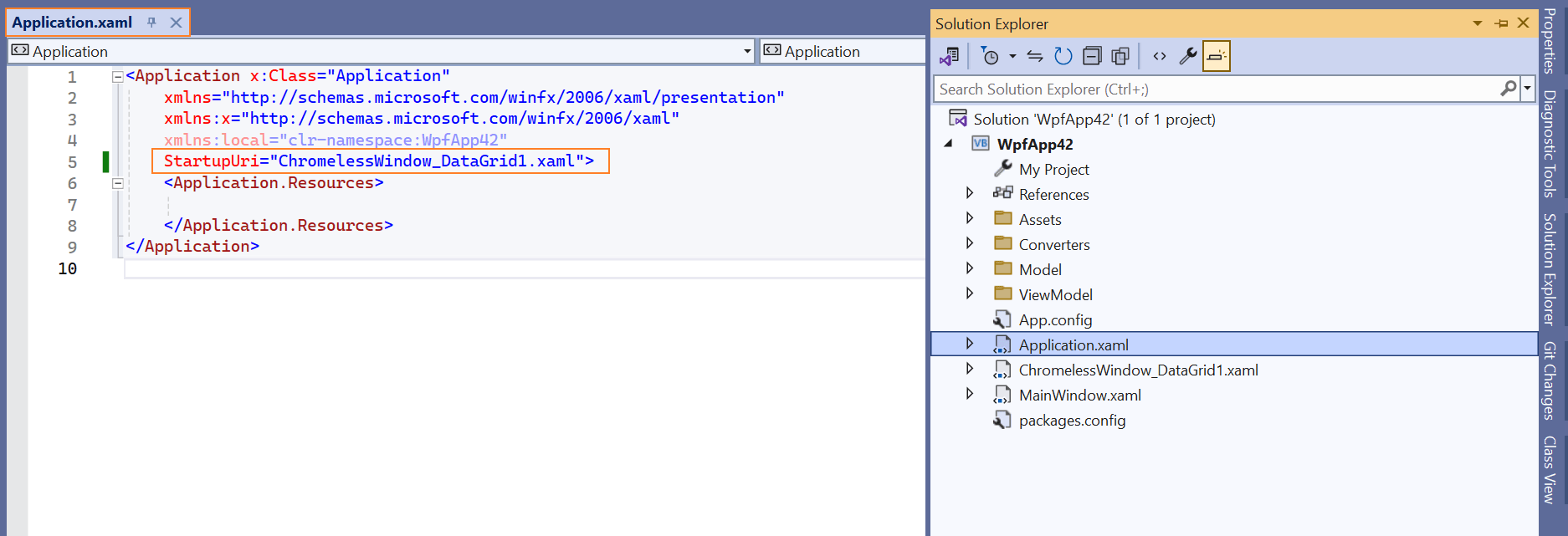How can I help you?
Add Syncfusion® components to the WPF Application
29 May 20254 minutes to read
Syncfusion® provides robust support for Visual Studio Item Templates, which facilitate the seamless integration of Syncfusion® WPF components and preconfigured windows into your WPF application. These templates include all necessary Syncfusion® WPF libraries, ensuring a smooth development experience.
IMPORTANT
The Syncfusion® WPF item templates are available from v19.1.0.54.
The following steps will guide you to add the Syncfusion® WPF Components to your Visual Studio WPF application.
Check whether the WPF Extensions - Syncfusion® are installed or not in Visual Studio Extension Manager by going to Extensions -> Manage Extensions -> Installed for Visual Studio 2019 or later and Visual Studio 2017 or lower by going to Tools -> Extensions and Updates -> Installed. If this extension is not installed, please install the extension by following the steps from the download and installation help topic.
Add components using Syncfusion® Item Template
-
Open a new or existing WPF application.
Option 1:
-
From the Solution Explorer, right-click on the WPF application. Choose Add Syncfusion® Item….
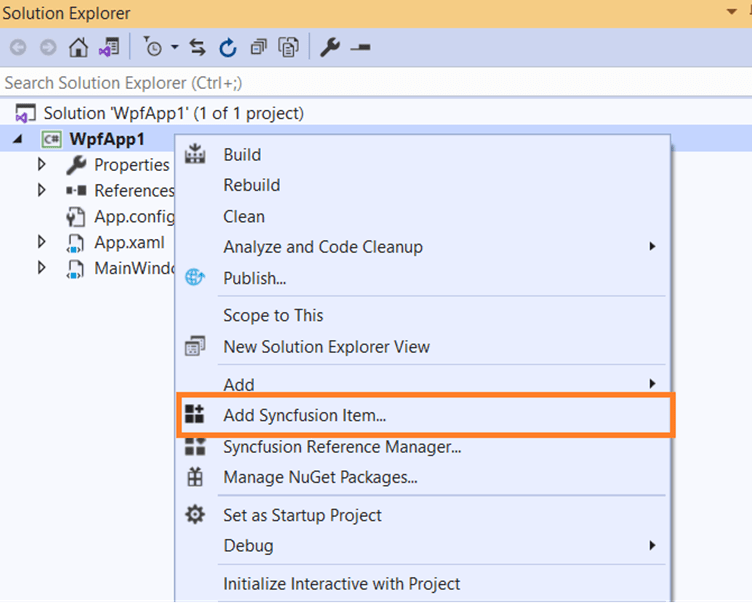
Option 2:
-
Click Extensions > Essential Studio® for WPF > Add Syncfusion Item… in Visual Studio.
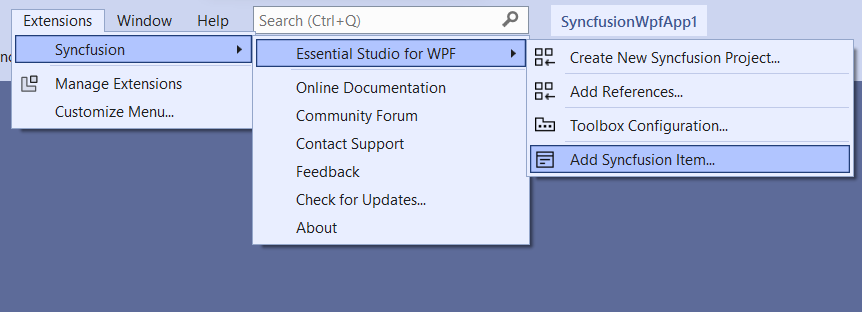
-
The Syncfusion WPF Item Template wizard will be launched as follows.
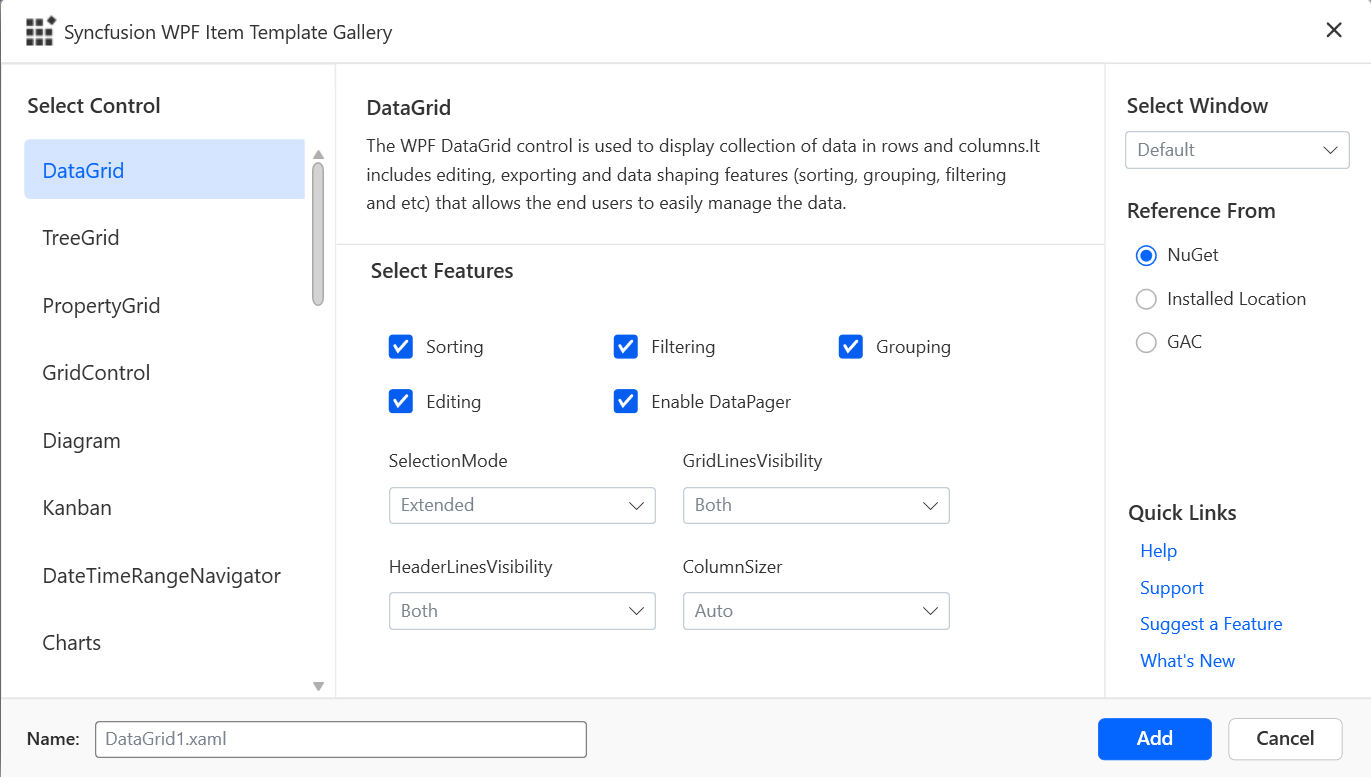
-
Please choose one of the following scenarios to add Syncfusion® Window in your application:
Default Window with Syncfusion® Component: If you select the Default window and then choose any Syncfusion® component and the specific features that are essential for your project, the selected component will be added with the default Microsoft window layout.

Syncfusion® Window with Syncfusion® Component: If you select a Syncfusion® window and then choose any Syncfusion® component and the specific features that are essential for your project, the selected component will be added with the layout of the selected Syncfusion® window.
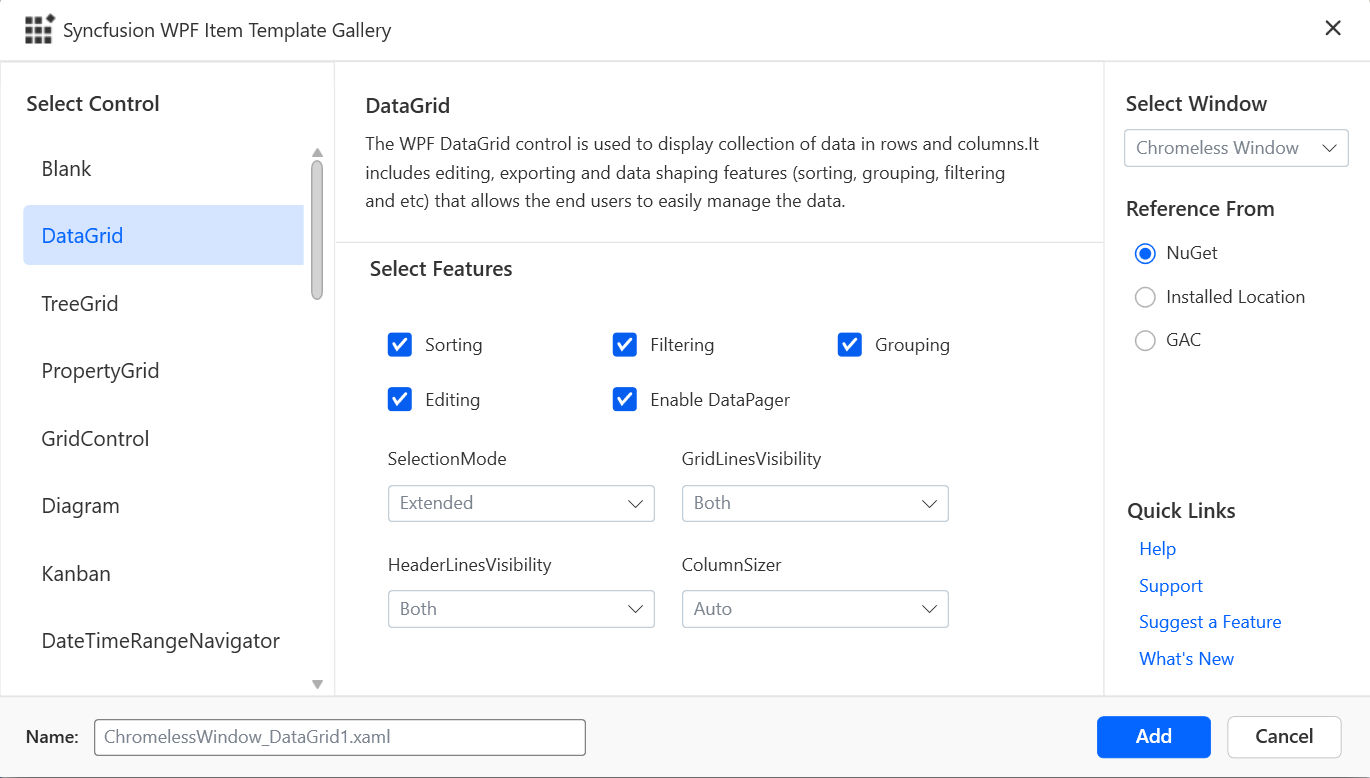
Syncfusion® Window without Syncfusion® Components: If you select a Syncfusion® window and then choose the Blank option from the Syncfusion® component list, a blank Syncfusion® window will be added without any Syncfusion® components.
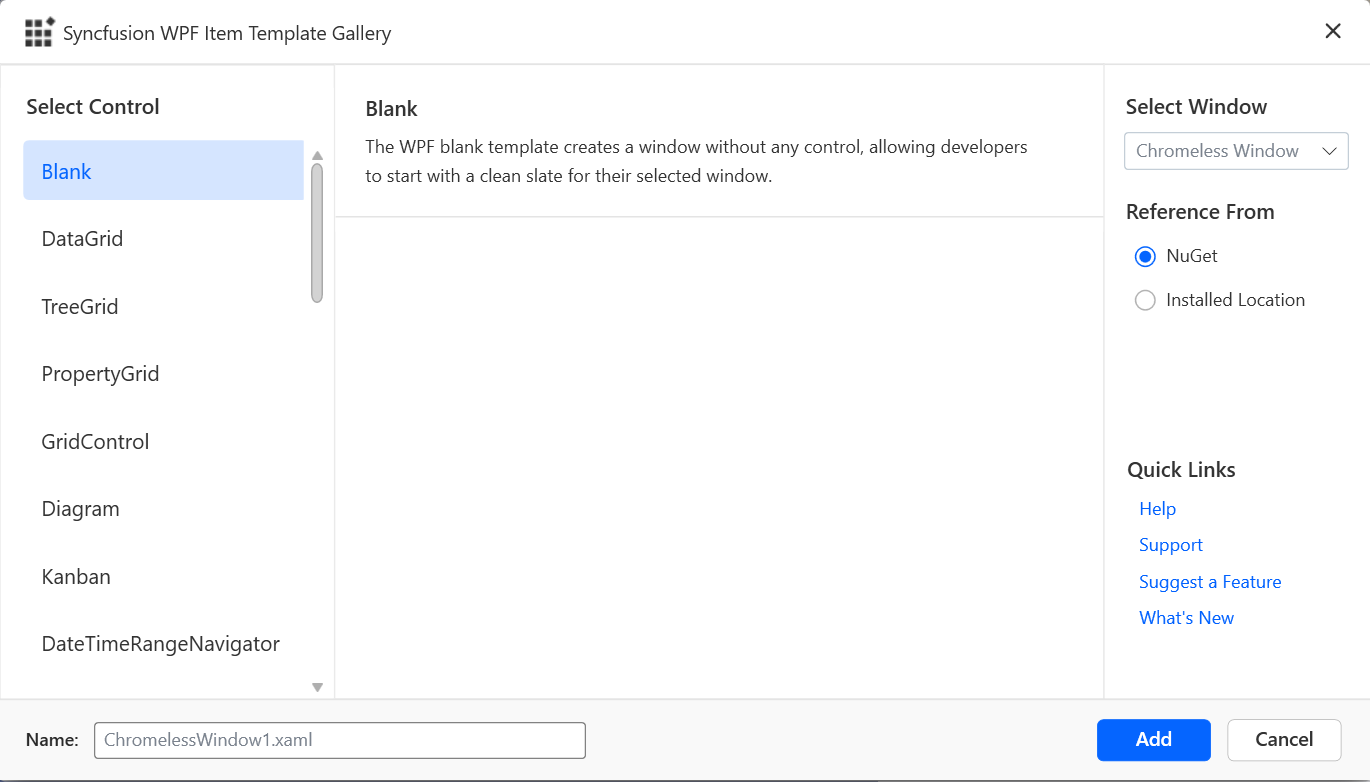
-
Choose an assembly reference option such as GAC location, Essential Studio® installed location, or NuGet packages to specify where the required Syncfusion® assemblies are added to the project.
NOTE
If the Syncfusion® Essential WPF build is installed, the Installed Location and GAC options will be enabled. Without installing the Syncfusion® Essential WPF setup, use the NuGet option. The GAC option will not be available when using the Syncfusion® WPF components in a .NET Core application. The Version drop-down lists the installed WPF versions.
-
Click Add, and a pop-up will appear providing information about adding component files and NuGet/Assemblies details.
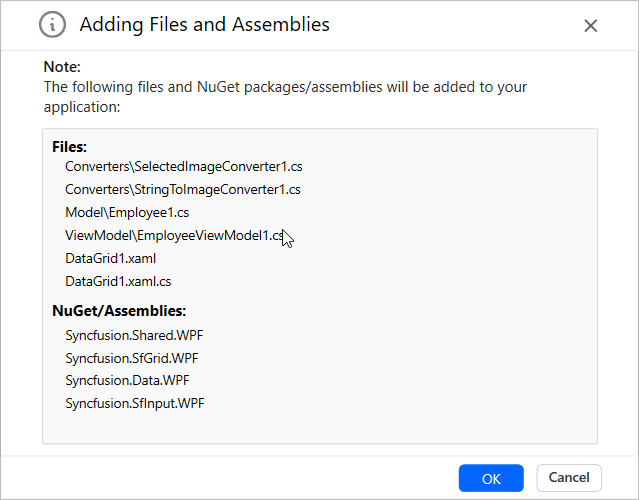
-
Click OK to incorporate the chosen components into the WPF application, along with the necessary Syncfusion® assemblies.
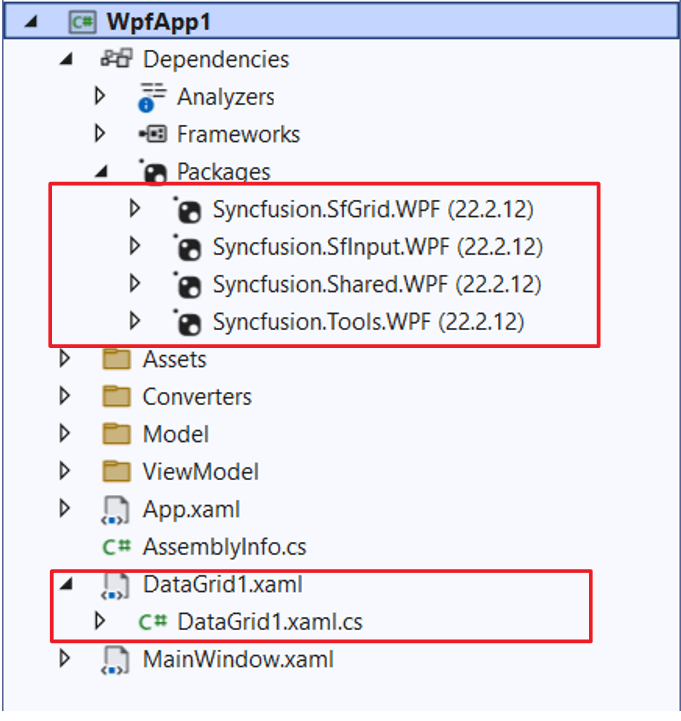
-
Then, Syncfusion® licensing registration required message box will be shown if you installed the trial setup or NuGet packages since Syncfusion® introduced the licensing system from 2018 Volume 2 (v16.2.0.41) Essential Studio® release. Navigate to the help topic, which is shown in the licensing message box to generate and register the Syncfusion® license key to your project. Refer to this blog post for understanding the licensing changes introduced in Essential Studio®.

-
To run the application using the selected Syncfusion® window, set the added Syncfusion® window as the startup window in your application. This ensures that when you launch the application, it opens with the selected Syncfusion® Window.
For C#: Open the App.xaml file in your project. Locate the line of code where the main window is being instantiated and set as the startup window.

For VB: Open the Application.xaml file in your project. Locate the line of code where the main window is being instantiated and set as the startup window.
